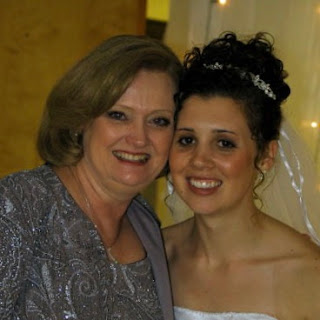Lessons From Naomi and Ruth - It's a Foreign Land
Entreat me not to leave you,
Or to turn back from following after you;
For wherever you go, I will go;
And wherever you lodge, I will lodge;
Your people shall be my people,
And your God, my God.
Ruth 1:16 NKJV
During the late 1970's and early 1980's, this was a much loved scripture chosen many times to be read at weddings. As a young woman, I too loved it and thought it to be romantic. The fact that it was in the Bible made it all the better. While these words are beautiful when read aloud and are certainly fitting for a wedding, the context of the scripture is not about a marriage relationship at all. They are words spoken by a woman to her mother-in-law. The life story of that woman, Ruth and her mother-in-law, Naomi, is written in the Old Testament book of Ruth. God used the lives of these real women to tell about the coming Christ, our Redeemer, who would come years later from the lineage of Ruth.
Naomi, her husband and two sons found themselves in the midst of a famine and moved to a foreign land. While there, the two sons married women from that land. Tragically, Naomi's husband and two sons died, leaving Naomi, Ruth and her other daughter-in-law alone. While Naomi was making plans to go home to Bethlehem, the other daughter-in-law went home to her own family. Naomi tried to convince Ruth to do the same but she chose to stay with Naomi instead. The scripture above is part of the words she then spoke to her mother-in-law.
So there the two of them were, Naomi in a foreign land, but home to her daughter-in-law, about to embark on a trip to Bethlehem, home for Naomi but foreign to Ruth. That’s where we start too. Wherever you are with your daughter-in-law, her world or yours, it is foreign for one of you. What you share, however, is the earnest desire to include and be included in each other’s world.
The pressure of that mutual desire sometimes inadvertently nudges the two of you into unexpected moments of awkwardness. Differences, even nuances, suddenly scream for attention in the middle of a pleasant visit. Early on, I told my daughter-in-law that we would teach her to be a night person. In my eagerness to convey to her that she was one of us, I unwittingly made her feel just the opposite. She is most definitely one of us and it has nothing to do with something as trivial as bedtime. I am thankful for the grace she continues to extend to me and thankful also, that she feels comfortable in my house to go to bed at her choosing.
The biggest thing you have in common is your son and your love for him. Strangely enough, he is also your biggest difference. You both are women and you both love him dearly, but your roles in his life are strikingly different. Scripture says that he is to leave your home and cleave to his wife, your daughter-in-law. You, of course, want that for him. The love of a mother and her child is God ordained and also "till death do us part." The marriage relationship will never replace it, there is no competition, but it is the marriage that shows the relationship between Christ and His church and it must come first. Just like the real lives of Ruth and Naomi, God wants to use the real life of your son and his wife to tell people about Himself and the gospel.
When he said “I do,” he stepped into a world that is foreign to you, but is now his home. You took a step too, though few noticed, from Mother-of-the-Groom to Mother-in-Law. The role we love, Mother, is the bridge between them, and is who you are as you join with your daughter-in-law to build a bridge between your two worlds.
The earnest desire to include and be included...
that's not law, it's love.

Comments